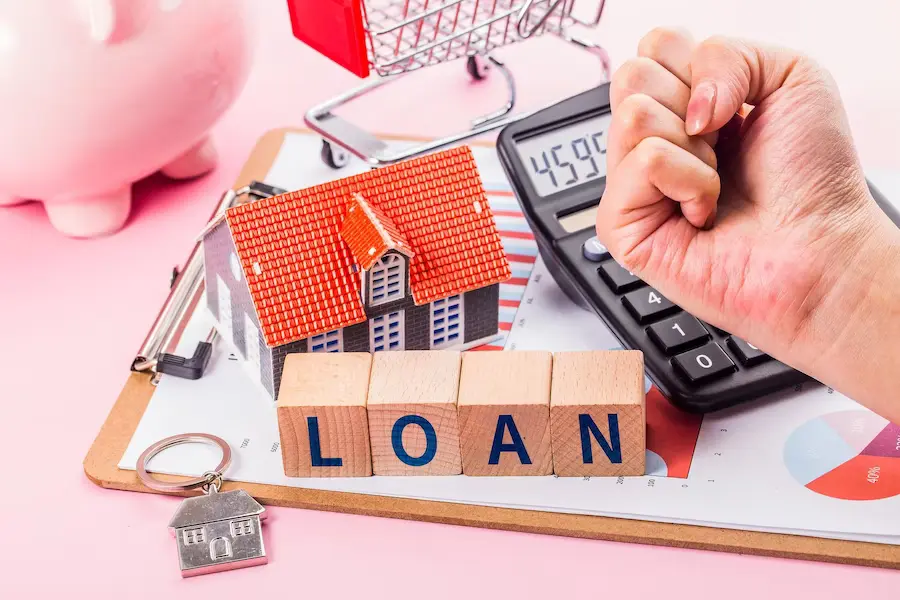What LTV For HELOC – A home equity line of credit (HELOC) is a popular option for homeowners wishing to access the value of their property. Before submitting an application for a HELOC, it is crucial to comprehend the meaning of Loan to Value (LTV) and how it relates to HELOC, and also you can use the same for calculating the HELOC loan credit limit in HELOC Calculator as well. This article gives an idea to readers to know about what LTV For HELOC and the significance it has for borrowers.
Read More - Best Way To Get A HELOC Loan
Table of Contents
Read More - How Do You Calculate A Payment on A HELOC?
What LTV For HELOC?
In a HELOC, LTV (Loan To Value) refers to the ratio between the loan amount and the appraised value of the collateral property. The borrower’s house is frequently used as collateral for HELOC. LTV is the amount of a property’s worth that is financed by a mortgage or used as collateral.

Read More - What Can a HELOC Be Used For?
The Calculation of LTV for HELOC
What LTV For HELOC -Divide the remaining loan sum by the home’s appraised value, then multiply the figure by 100 to determine the LTV for a HELOC. The equation is represented as follows:
- LTV = (Outstanding Loan Balance / Appraised Home Value) x 100
For example, if the outstanding balance of a HELOC is $80,000 and the appraised value of the home is $200,000, the LTV would be 40%:
- LTV = ($80,000 / $200,000) x 100 = 40%
Read More - Choosing the Right HELOC Repayment Plan
Importance of LTV For HELOC
When thinking about a HELOC, it’s important to understand the LTV because it affects the terms that lenders will give as well as the loan approval procedure. Less risk for the lender is indicated by a lower LTV, which translates into more favorable terms like lower interest rates and bigger loan limits. A higher LTV, on the other hand, indicates a larger risk, which may lead to higher interest rates and fewer credit limits.

Read More - Difference Between Home Equity Loan and Heloc
Factors Influencing What LTV For HELOC
The credit rating of the borrower, their income, employment history, and the appraised value of their house are some of the variables that affect the LTV For HELOC. Lenders evaluate these variables to establish the degree of loan risk.
Managing LTV to Maximize HELOC Benefits
The credit rating of the borrower, their income, employment history, and the appraised value of their house are some of the variables that affect the LTV for a HELOC. Lenders evaluate these variables to establish the degree of loan risk.
Risks Associated with High LTV in HELOC
Borrowers in a HELOC are subject to certain dangers when the LTV is high. The lender may have trouble recouping the loan amount through the sale of the property if the value of the asset drops or the borrower defaults on the loan. Furthermore, borrowers may find it more challenging to acquire cash due to increased interest rates and lower credit limitations caused by high LTVs.
Strategies to Reduce LTV in HELOC
Borrowers have a number of options for lowering the LTV on a HELOC. These include making additional principal payments, raising the home’s worth through modifications or renovations, or having the property reassessed. These methods aid in raising the home’s equity and lowering the loan’s outstanding balance.
LTV Requirements By Lenders
For HELOCs, different lenders have different LTV criteria. Some lenders might have more stringent requirements while others might have softer ones. It is critical for borrowers to comprehend the LTV specifications of various lenders and select the one that best suits their financial circumstances and objectives.
LTV vs. Credit Score: Which Matters More?
What LTV For HELOC – LTV and credit score both have a big impact on a HELOC approval and terms. A credit score reflects the borrower’s creditworthiness, whereas LTV determines the risk of the loan. When deciding on the terms of a HELOC, lenders take both variables into account. To obtain favorable loan terms, borrowers must keep a high credit score and carefully manage their LTV.
Common Misconceptions about LTV For HELOC
There are a few widespread myths about what LTV for HELOC. One of them makes the assumption that a high LTV will inevitably result in loan rejection. High LTVs may lead to less favorable terms, although they may not always mean rejection. Another common misunderstanding is that lenders only take LTV into account. In reality, lenders consider a variety of variables when deciding whether to lend money, including income and credit score.
Tips for Improving LTV in HELOC
– Pay down more principal to lower the loan balance.
– By making modifications or renovations, raise the value of the house.
– To reflect the property’s current market worth, request a reappraisal.
– Avoid acquiring new debt that could raise the LTV ratio.
LTV and Loan Limits in HELOC
The borrowing limits for HELOCs are also influenced by LTV. Credit limitations may be reduced by higher LTV ratios, while credit limits may be increased by lower LTV ratios. These restrictions should be understood by borrowers and taken into account when determining their financing requirements.
Monitoring and Adjusting LTV in HELOC
Borrowers must continuously assess their LTV ratio and make necessary adjustments. Borrowers can maintain awareness of their LTV and efficiently manage it by routinely monitoring the outstanding loan balance and the home’s appraised worth.
How LTV Impacts Interest Rates in HELOC?
LTV directly affects the interest rates HELOC that lenders charge for HELOCs. Interest rates are often more favorable the smaller the LTV, whereas the more significant the LTV, the potential for higher rates. cheaper LTV borrowers can benefit from more affordable interest payments over the loan’s term.
Read More - Do You Need an Appraisal for a HELOC?
Conclusion
Hope you understand “What LTV For HELOC“. The Home Equity Line of Credit (HELOC) approval procedure and terms are significantly influenced by Loan-to-Value (LTV). Understanding LTV and successfully controlling it can assist borrowers in obtaining better loan terms, such as reduced interest rates and bigger credit limits. Borrowers can maximize the advantages of a HELOC while lowering associated risks by monitoring and modifying their LTV over time.
FAQs – What LTV For HELOC?
Can I get a HELOC with a high LTV?
The answer is that a HELOC with a high LTV is doable. A greater LTV, however, could lead to less favorable conditions, such as higher interest rates and smaller loan limits.
How can I improve my LTV in a HELOC?
You can increase the value of your home, make more principal payments, or ask for a reappraisal of the property to raise your LTV on a HELOC.
Does LTV affect the interest rates in a HELOC?
Lenders’ interest rates for a HELOC directly depend on LTV. Generally speaking, lower LTV results in more favorable interest rates.
Can I reduce my LTV after getting a HELOC?
Yes, after obtaining a HELOC, you can lower your LTV by making principle payments, raising the value of your home, or combining these methods.
How do lenders determine the LTV requirements for HELOCs?
Lenders base their LTV requirements on a number of variables, including as their risk tolerance, the state of the market, and governmental regulations. It is wise to speak with various lenders to learn about their particular LTV criteria.

